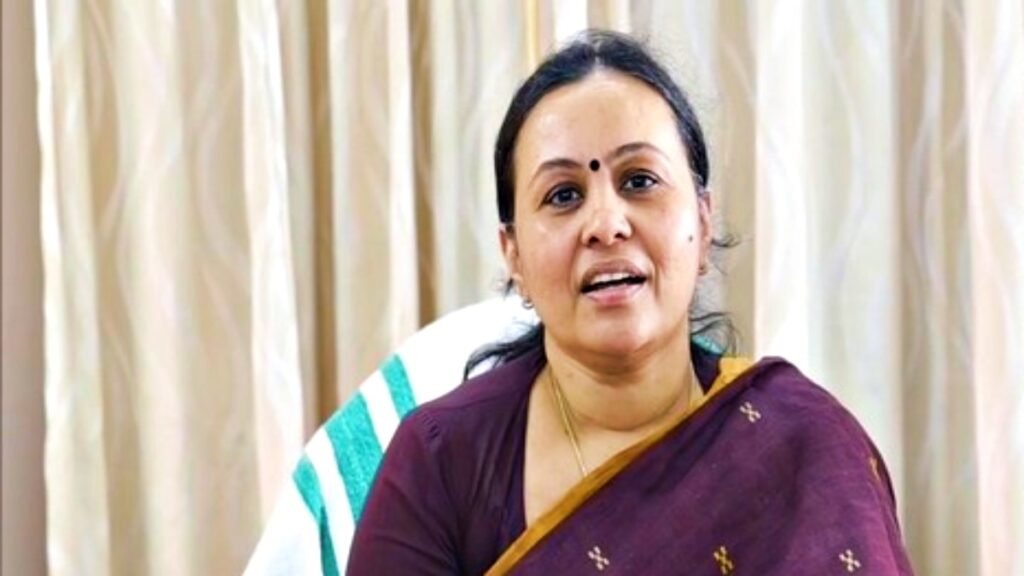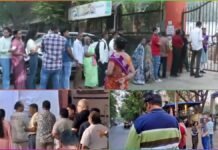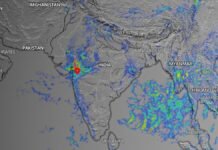
Kozhikode: The state of Kerala is on high alert as the Nipah virus, a deadly zoonotic disease that can cause brain damage and death in humans, has resurfaced in the district of Kozhikode. Six cases of Nipah infection have been confirmed so far, out of which two have succumbed to the disease. The state government has imposed strict restrictions and surveillance measures to contain the outbreak. On Saturday, Kerala Health Minister Veena George gave an update on the Nipah situation and said that no new cases have been detected today and 11 samples that were sent for testing have come back negative.
21 people under observation
Veena George said, ‘The results of 11 samples sent for Nipah testing have come negative. The total number of positive cases remains at six, which was the count till yesterday. There have been no new cases today.” She said that 21 people who had close contact with the last person who tested positive are currently under observation in the medical college. She said that the health department’s priority is to trace all the contacts of the infected persons and to identify the source of the first case, who died last month.
Police mobile towers to help in contact tracing
The Health Minister said, ‘We have requested the police to provide us with the mobile tower location of the first case so that we can trace the places where he had visited. We have already formed 19 teams for contact tracing. We are also tracing people from other districts who have come in contact with Nipah patients.
1080 contacts of positive patients identified
On Friday, the state health department said that it had identified 1,080 contacts of the positive patients and started collecting samples from them. The department had said that all the people who are in the high-risk contact list of infected persons will be tested for the Nipah virus. The Indian Council of Medical Research (ICMR)’s National Institute of Virology (NIV) in Pune sent its mobile BSL-3 (Biosafety Level-3) laboratory to Kozhikode to facilitate faster testing of virus samples in the district.
This is the fourth time that Nipah virus infection has been confirmed in Kerala. It was detected in Kozhikode in 2018 and 2021, and in Ernakulam in 2019.
Educational institutions to remain closed in Kozhikode, online classes to resume
Due to the rising threat of the Nipah virus, the Kozhikode district administration has ordered all educational institutions to conduct classes online from September 18 to 23. According to the order issued by District Collector A Geeta, educational institutions including tuition-coaching centers are prohibited from conducting physical classes. This decision was taken in a meeting chaired by Education Minister V Sivankutty on Friday.
Anganwadi and Madrasa were also affected by the order
The order also banned the operation of educational institutions in the district under sections 26, 30, and 34 of the Disaster Management Act. According to the order, no student is allowed to enter educational institutions. This order is also applicable to Anganwadis and Madrasas. However, public examinations will be conducted as per schedule. Earlier, apart from Thursday and Friday, Saturday (September 16) was also declared a holiday in educational institutions in Kozhikode.

Nipah virus prevalent across the state?
According to studies by the World Health Organization (WHO) and ICMR, Nipah virus infection is not limited to Kozhikode but is prevalent across the state. People living in forest areas are at a higher risk of exposure to the virus. The latest outbreak has originated within five kilometers of the forest area.
Nipah virus is a zoonotic disease that can be transmitted from animals to humans or through contaminated food or direct contact with infected persons. The symptoms of Nipah virus infection are similar to those of COVID-19, making early detection and diagnosis crucial. These symptoms include fever, headache, cough, sore throat, difficulty breathing, vomiting, dizziness, drowsiness, altered consciousness, and neurological signs indicative of acute encephalitis. There is no specific treatment or vaccine for Nipah virus infection and only supportive care can be provided to manage symptoms. The fatality rate of Nipah virus infection ranges from 40% to 75%.




















































